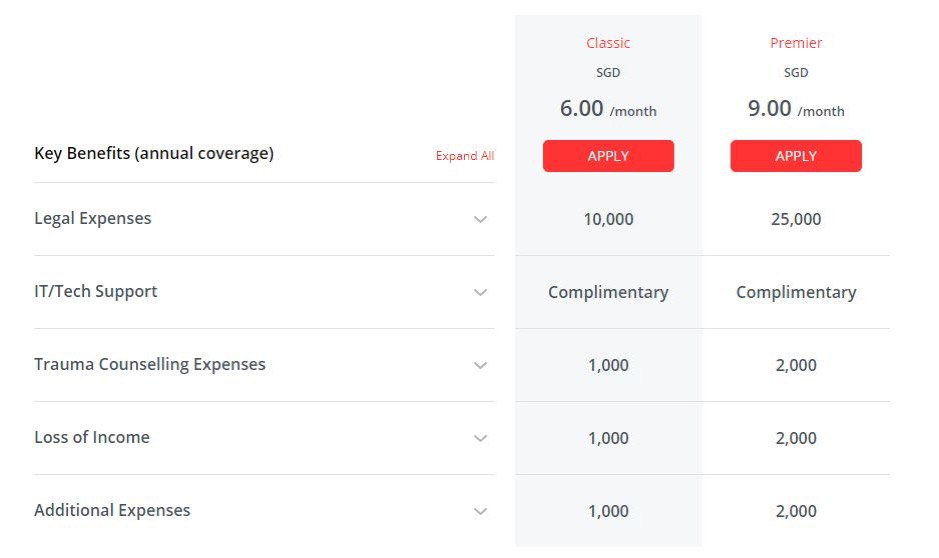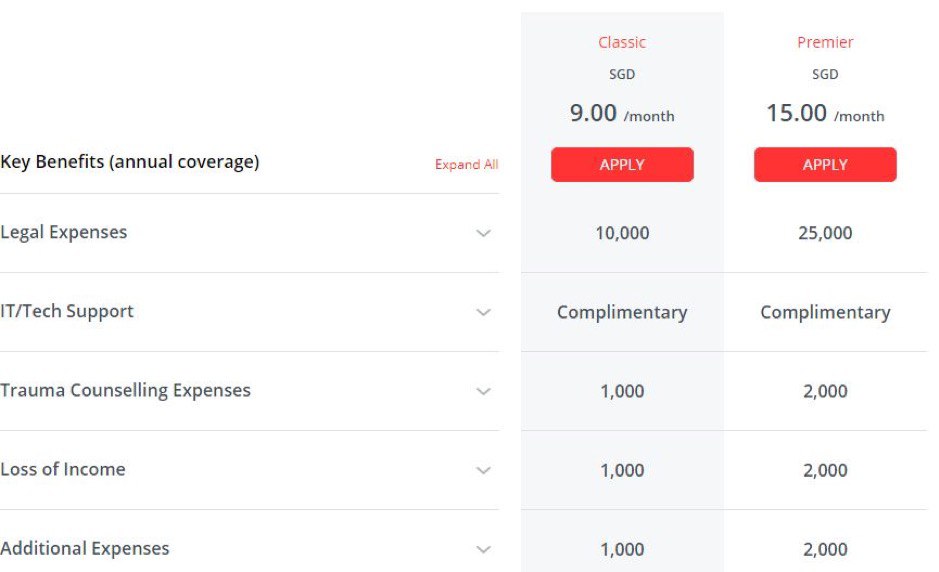A new insurance policy now allows you to protect yourself if you get cyber-bullied, harassed online or are the victim of online identity theft.
The policy comes in two levels of coverage, costing either S$6 or S$9 per month, but which allow you to claim up to S$25,000 in legal fees and S$2,000 in counselling fees — should either of those be required to resolve cases of cyber-bullying or identity theft.
Let's dive right into the details:
What's this all about, and who's providing it?
This policy is called CyberSmart, and is provided by DBS Bank and Chubb Insurance.
And what the heck, why do we now need insurance for this?
Well, because it's a real problem, and it's happening more and more often these days.
And because getting recourse for cyber-bullying can be pretty costly — especially if you end up engaging a lawyer to do so, and most of the time, it is needed.
Want stats? Mediacorp's Talking Point commissioned a survey in March that found three out of four teenagers in Singapore have reported being bullied online. And up to 89 per cent of the victims said they did not do anything in response to being bullied online.
That's kinda disconcerting. Why are they not?
According to Channel NewsAsia:
- They don’t want their parents to know about their personal life online
- They think their parents would suggest they ignore the cyber-bullying
- They’re afraid of getting into trouble with their parents
- They fear their parents will cut their access to their technological devices
What precisely does this insurance cover?
In short: online identity theft, and cyber-bullying.
And can those be eaten?
DBS defines online identity theft as:
"...the theft of personal information or documents (stored online or in an electronic device) by a third party for the purpose of obtaining goods, money or services."
And cyber-bullying is defined as:
"...any act of harassment or intimidation, including defamation of character, invasion of privacy, or threats of violence, committed against you online via an electronic device."
So how does it work?
Here's the skinny:
You sign up for the policy, pay the monthly premium (of either S$6 or S$9 for individuals. Family plans are priced at either S$9 or S$15 per month), and if you find yourself at the receiving end of cyber bullying or online identity theft, you get a complimentary hour for each of the following services:
- Legal consultation,
- Access to a 24-hour IT/Tech hotline,
- Counselling.
Beyond that, you will also receive money for:
- Legal fees you had to fork out to, for instance, take out a protection from harassment court order,
- Counselling fees you may have had to pay if you suffered trauma and needed counselling beyond the initial complimentary hour,
- Tech support (perhaps for wiping your personal details, blocking access to certain sites, cached pages or posts that are displaying your personal details and causing further harassment to you for instance),
- Any loss of income you might have suffered in the process (e.g. if you're in a contract position and had to take leave or lose money you would've earned if you didn't go to court or for counselling during work hours), as well as
- Additional expenses you might have incurred that can include
- replacement fees (for lost ICs or passports for instance),
- transport claims (perhaps for a cab you took to court or counselling),
- elder or childcare costs (for a stand-in caregiver while you needed to be away for court or counselling), and
- any incidental costs incurred in the course of tech support action.
Moar details please. Who qualifies, what exactly do I get from this?
Whether you're applying for an individual or family plan, you have to be a Singapore resident and at least 18 years of age.
The policy includes an initial free legal consultation and trauma counselling session of an hour each, after which it'll cover up to S$25,000 in legal expenses and up to S$2,000 for additional trauma counselling.
Additionally, the policy provides access to a 24-hour IT hotline for the relevant expertise on resolving or minimising an incident online.
The policy also allows for up to S$2,000 of claims over loss of personal income due to time taken off from work to restore and rectify your identity or other related things.
Up to another S$2,000 can also be claimed for additional expenses incurred as a result of an incident.
 Source:CyberSmart
Source:CyberSmart
Family plans cover the policyholder, their spouse, their children under the age of 21 and even their parents, assuming the parents reside with the policyholder.
 Source:CyberSmart
Source:CyberSmart
So if 10 incidents of online identity and harassment happen to me, can I claim S$25,000 in legal costs for each?
Unfortunately, no. The sums listed are the total amounts you'll be allowed to claim in one year. If what you need to claim from those 10 cases (also wah, you really quite suay ah) exceeds those amounts, you're on your own.
The family plan's claim limits also apply to the entire family collectively — it isn't an amount per family member that can be claimed.
So how do I submit a claim?
Assuming you bought the policy and you had your identity stolen/were bullied online, you must first make a report to the police about the incident.
You can then submit your claim via the Chubb Assist hotline at +65 6322 2136. Once Chubb has received your claim and supporting documents, you will be reimbursed via cheque or bank transfer within the next 5-7 business days.
Note that in the case of supporting documents, if you are claiming for additional expenses and loss of income, you will have to download the relevant forms here, then submit the forms directly to [email protected].
So what does the policy *not* cover?
Because the nature of identity theft and cyber-bullying can come in various shapes and sizes for everyone, it is perhaps easier to state one thing the policy does not apply to — the loss of data as a consequence of a mass cyber attack:
"This is a personal cyber policy that covers you against incidents targeted at you. It does not cover any loss caused by a mass, coordinated effort by a domestic or international actor intending to affect a large number of software or hardware users or members of a class or group."
There you have it.
Top photo by Guan Zhen Tan
This sponsored article by DBS made us think twice about trolling in the comments section.
If you like what you read, follow us on Facebook, Instagram, Twitter and Telegram to get the latest updates.
